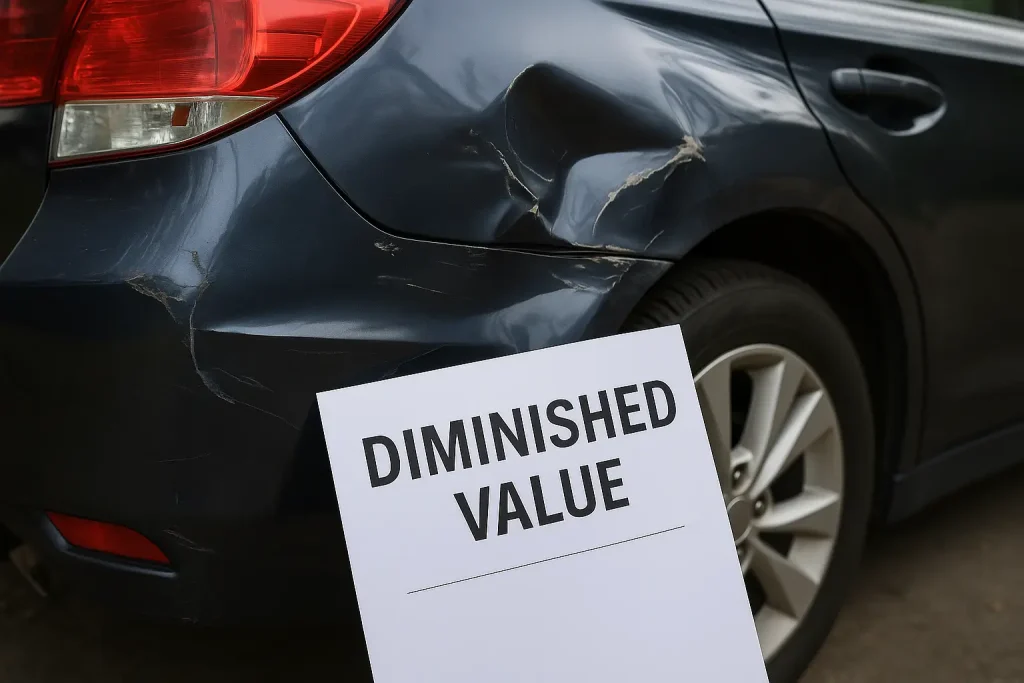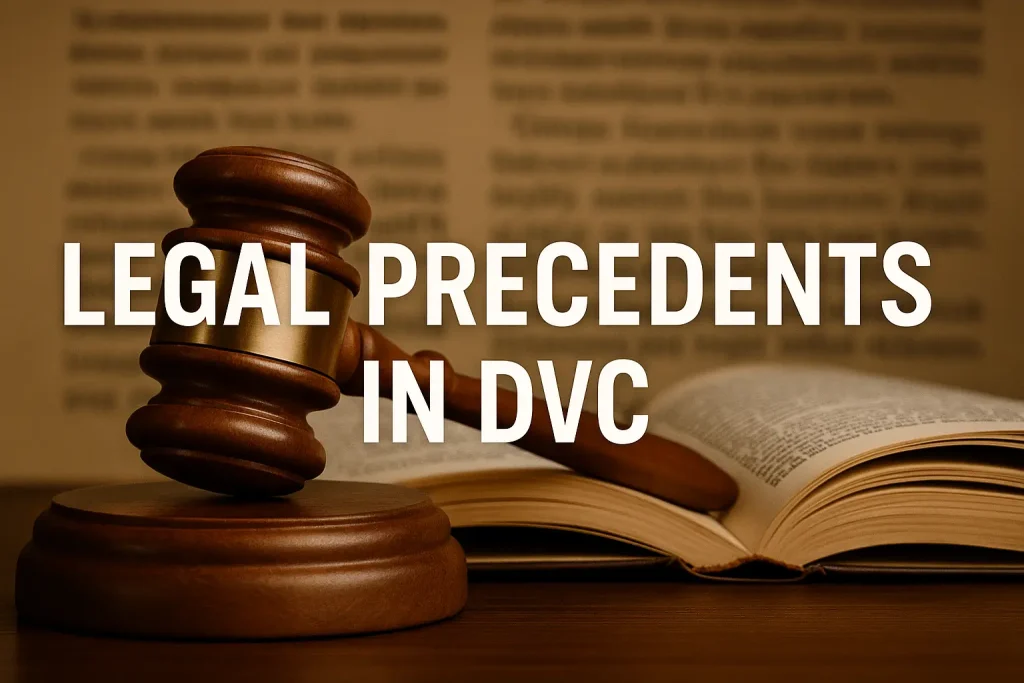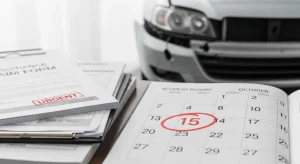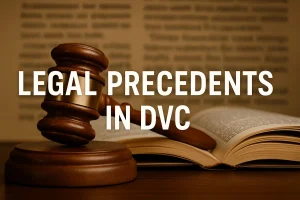Legal precedents in DVC (diminished value claims) help shape how insurers evaluate payout responsibilities. If your car lost value after an accident—even if it was fully repaired—legal cases in various states may give you a basis for recovering that loss. In this article, you’ll learn what DVC means, how precedent affects your case, examples of court decisions, and how to use them to your advantage.
What Are Diminished Value Claims?
Even after repairs, a vehicle’s resale value often drops because of its accident history. Diminished value claims let car owners recover this lost value through insurance—if their state allows it and their policy covers it.
Three Types of DVC
- Inherent DVC – Loss due to accident record alone
- Repair-related DVC – Due to flawed or incomplete repair
- Immediate DVC – Value lost immediately after the accident
Why Legal Precedents Matter in DVC Cases
Legal precedents are court rulings that set a standard for future cases. In the DVC context, they determine whether insurers are legally obligated to pay, even when their policies are vague or silent on the issue.
In states like Georgia, DVC precedent has forced insurers to acknowledge the loss in resale value—even when repairs were perfect. Other states have started following suit or recognizing similar logic in total loss disputes.
Landmark Cases That Set the Standard
| State | Case | Outcome for DVC |
|---|---|---|
| Georgia | State Farm v. Mabry | Recognized inherent DVC payout required |
| Oregon | Ellsworth v. USAA | Required disclosure of DVC eligibility |
| Florida | Various lower court rulings | Trending in favor of claimants |
| Washington | Several successful lawsuits | Accepted properly documented DVC |
Georgia – State Farm v. Mabry
This case ruled that insurers must pay for inherent diminished value. Georgia remains the most claimant-friendly state for DVC.
Oregon – Ellsworth v. USAA
Oregon’s courts reinforced the importance of disclosure. Insurers cannot hide or avoid DVC responsibilities.
Florida, Washington, and Texas Trends
While no single case defines DVC law in these states, there’s been a trend toward accepting it when supported by solid valuation and appraisals.
Legal Precedents in Total Loss Disputes
Although diminished value technically applies to repaired vehicles, legal arguments around DVC often bleed into total loss scenarios. Courts have challenged insurers who undervalue vehicles at the time of total loss, citing the same logic behind diminished value: policyholders are entitled to fair market value—no less.
How to Use Legal Precedents to Strengthen Your Claim
If you’re not a lawyer, that doesn’t mean you can’t use legal precedent. Here’s how:
Mention Precedent in Written Disputes
Reference cases like Mabry or state-level decisions to support why you’re requesting compensation.
Use Certified DVC Reports
Back up your case with third-party reports that mention how your situation reflects prior legal rulings.
Talk to a DVC-Savvy Attorney or Appraiser
Many legal professionals are familiar with these arguments. A well-prepared report that references precedent is more likely to succeed.
Not All States Are Aligned
Some states still don’t recognize diminished value as recoverable—especially under liability coverage. Also, laws vary based on who’s at fault and whether your car was leased or financed. This is why referencing local precedent matters.
Conclusion: Legal Precedents in DVC Can Tip the Scales

Legal precedents in DVC are powerful tools. They show courts and insurers that your claim is backed by law, not just opinion. Whether you’re in Georgia or another state trending in favor of claimants, citing precedent could increase your chances of recovering the money you’re owed after an accident. Learn the law, build your claim, and don’t settle for less than your car’s true value.



